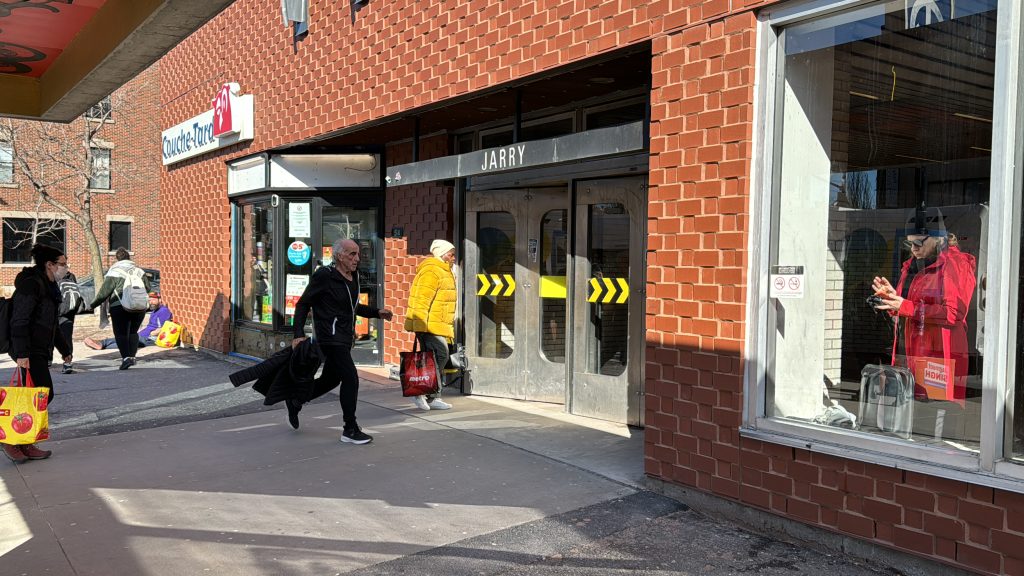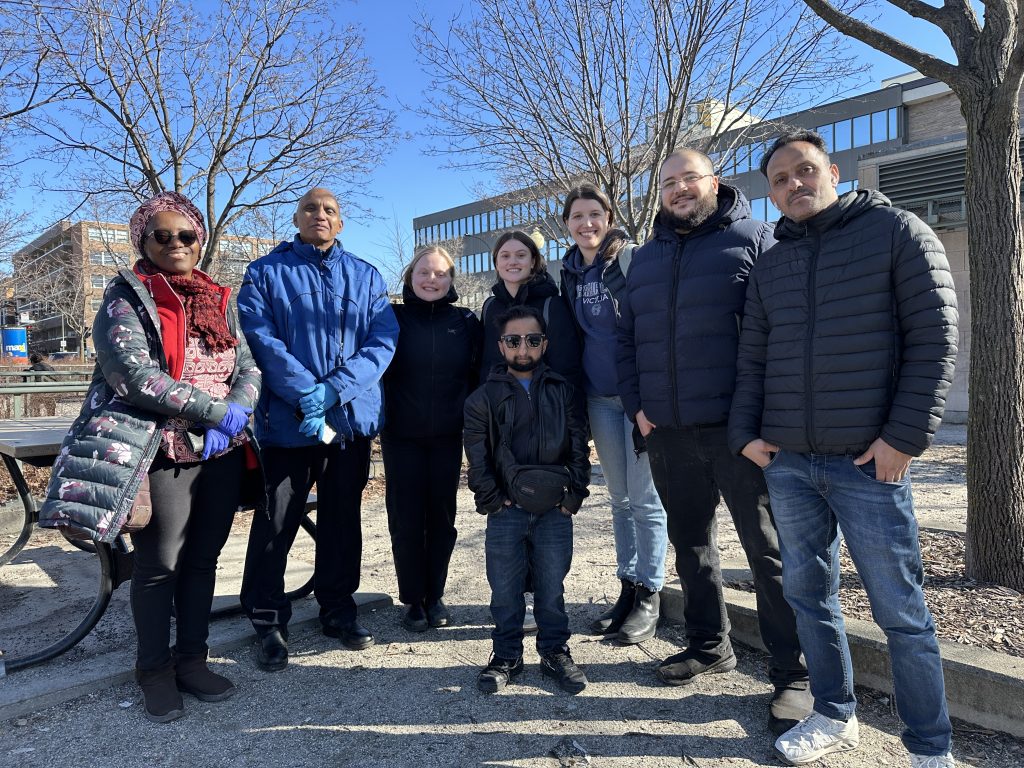Chinatown residents calling for more action to keep neighbourhood safe

Posted August 17, 2023 11:57 am.
Last Updated August 17, 2023 7:05 pm.
Chinatown residents who say they are living in constant fear due to increasing crime there, are asking Montreal Mayor Valérie Plante to come spend an evening with them in the neighbourhood – so she can better understand how bad the situation has gotten.
“Madame Plante, please come down, meet with the residents, stay here for a few hours at night and see for yourself how bad it is and listen to what the residents want,” says Fo Niemi of CRARR, who is helping the community have their voices heard.
“We see criminal activities that are beyond description, this just cannot continue on,” says Byrant Chang, the Vice-President of the Chinese Association of Montreal at a press conference on Thursday morning. Representatives and residents called for concrete measures to improve public safety and public health in the area.
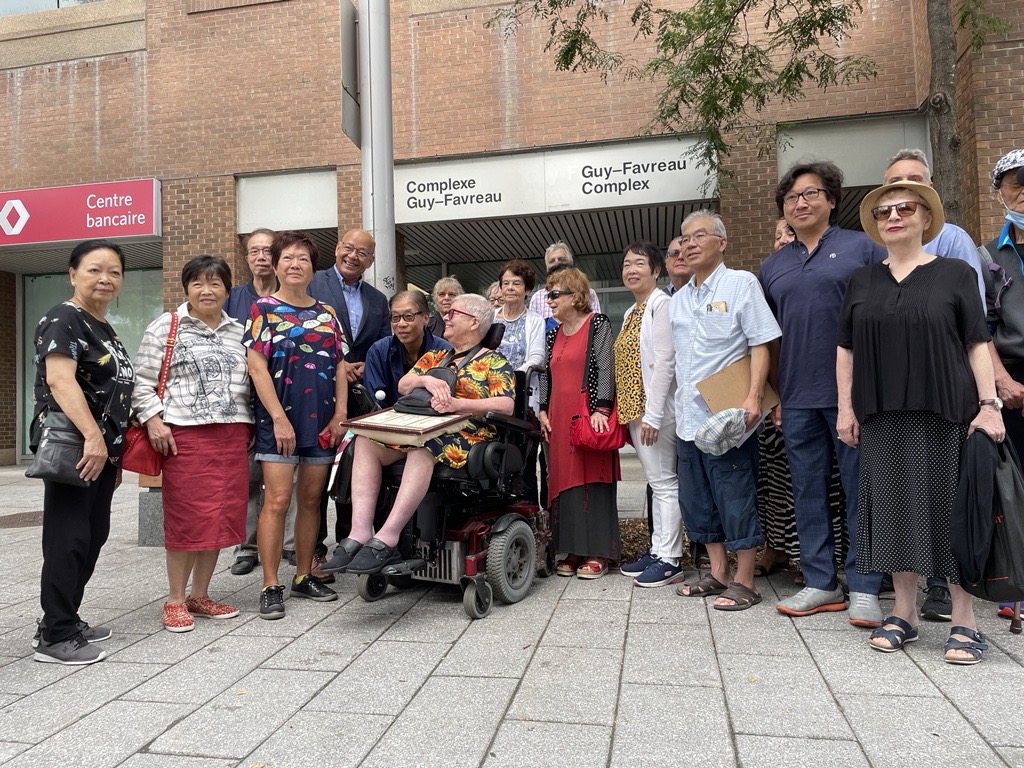
Residents of Montreal’s Chinatown calling on authorities to do more about increasing crime in the area (Felisha Adam, CityNews Image)
They are also circulating a petition outlining their concerns about “acts of vandalism, disturbance, intimidation and theft, physical violence, drug trafficking and use, sexual misconduct, arson and assault, in streets, alleys and other public spaces of Chinatown.”
“The residents, property owners, business merchants and workers, Chinese and non-Chinese alike, should have a say in how they go about their daily lives and to be safe in their own neighbourhood,” says Chang.
They say these acts are becoming more frequent, explicit and violent. Some residents say it’s become difficult to access their building which has been blocked by “squatters.” They add that in some areas, the presence and stench of urine and feces has become a danger to public health.
“I’m scared to go out and take the metro it is a matter of safety concern and even for the elderly I feel bad for them,” says Monisha Meherally a resident who lives near Complex Guy Favreau, which houses a homeless shelter that’s set to close in October.
She and other residents say they’ve seen acts of intimidation, thefts, physical violence, drug trafficking and drug use, in streets, alleys and other public spaces of Chinatown.
“We are increasingly besieged by these acts of crime and disorder, which have affected our quality of life, our physical and mental well-being, and our property values. We no longer feel nor are safe”, states the petition launched by local residents, including Bill Wong, who says he can no longer sleep peacefully at night due to screaming in the streets.
“We have fundamental rights as residents to the peaceful enjoyment of our home to live in peace and saftey and to safeguard our dignities,” says long time resident of Chinatown, Bill Wong.


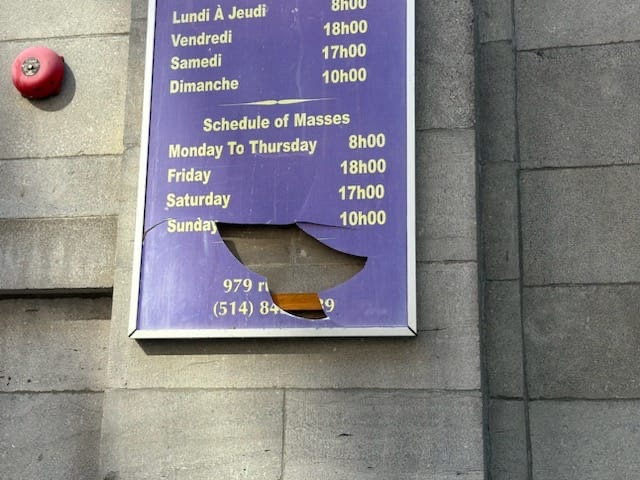
RELATED
Chinatown homeless shelter closes after violence, crime complaints from merchants and residents
Residents and merchants of Montreal’s Chinatown concerned with increased crime and violence
Residents are asking the city to implement a zero tolerance approach when it comes to noise, criminal activities and disorder. Increase police patrol in the area, have more consultations with the community, and prevent the location of homeless shelters in any building within Chinatown.
This after Mayor Plante on Tuesday said that the location for a new shelter would have to be in the same area, or a little further out, so it doesn’t destabilize or amplify the problem further, something Niemi says is actually part of the problem. They blame local authorities for inadequate action and lack of consultation.
“To do any cohabitation, even talks or plan, you got to involve the residents…not coming in from outside and impose a cohabitation and say, okay, now you will cohabitate, but we won’t give you any resources. We won’t even listen to you, we won’t consult with you. We won’t have you at the decision-making table,” Niemi adds.
“The influx and explosion of the homeless population in recent months goes against the social, economic and cultural needs of our community. Let us be clear: we are not against the homeless, but people who commit crime and disorder,” says Chang.
The group making it clear that this fight is not against the homeless population, but just those involved in criminal activities such as drug trafficking and creating disruption for residents, most of whom are seniors.
“Chinatown should not be the dumping ground for these violent homeless individuals, and co-habitation is not the right concept, or long-term solution to such a complex societal problem, especially when seniors of Chinese and other origins are not recognized as vulnerable, when residents are not consulted, and when Chinatown residents and merchants are not at the decision-making table,” he added.
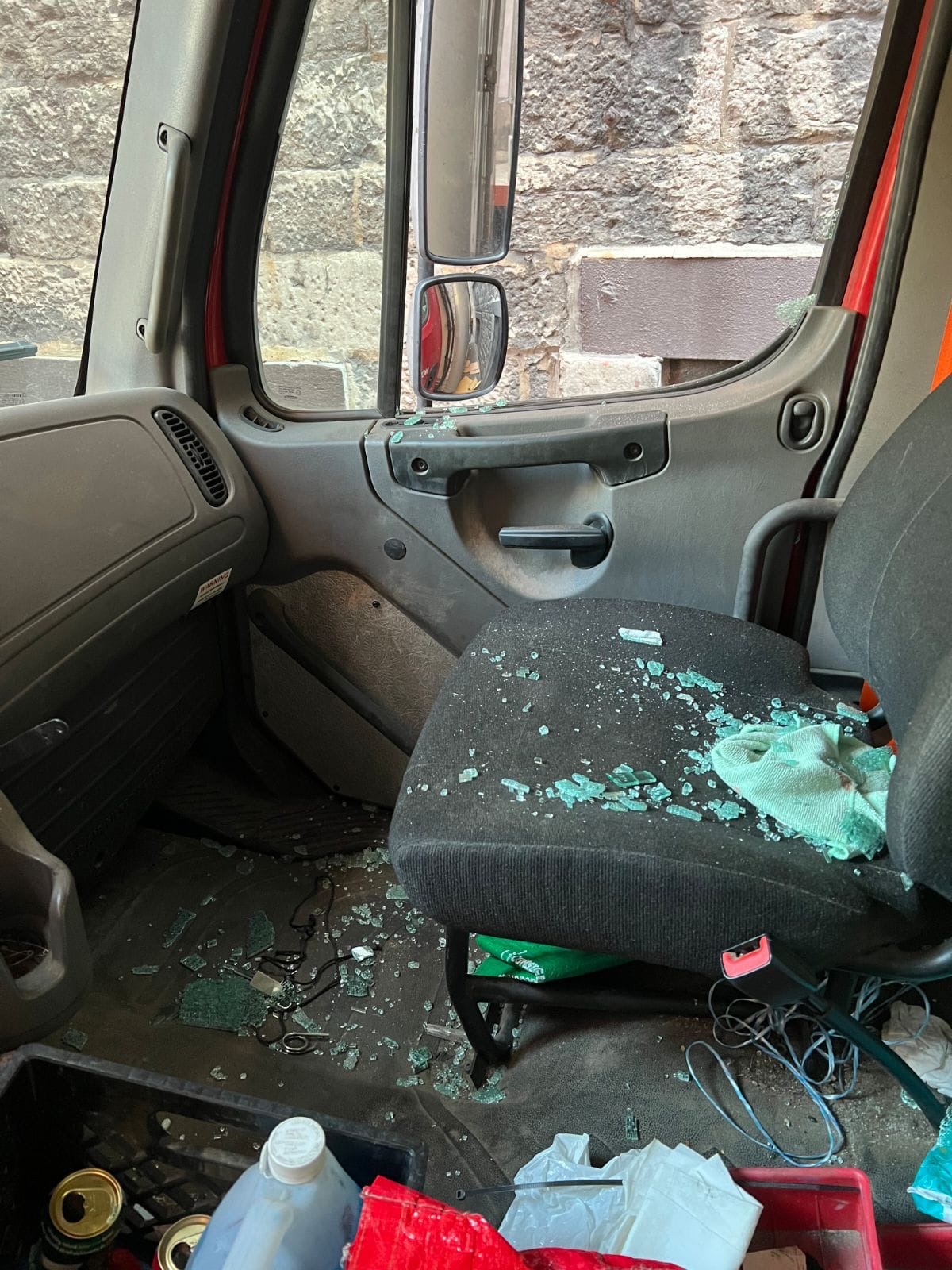
Property damage captured by residents in Montreal’s Chinatown (Felisha Adam, CityNews Image)
According to the Center for Research-Action on Race Relations (CRARR), which has been asked to help residents in Chinatown, the situation puts seniors’ civil rights in jeopardy.
“Authorities have for too long neglected another group of vulnerable and marginalized people who also need care and protection, namely, seniors who live in Chinatown, particularly seniors who are Chinese and who are culturally, linguistically and socially isolated,” CRARR Executive Director, Fo Niemi, stated in the same press release.
They are asking Mayor Plante and other authorities to apply a zero tolerance approach to criminal activity and enforce laws.
They are also calling for an increased police presence in Chinatown, to close down all facilities that serve as gathering places for people with illicit behaviours, to conduct consultation with residents, merchants and workers in the area, and finally to forbid the location of homeless shelters in any building located within Chinatown.
CRARR says legal action is also being examined to protect seniors in Chinatown.
“It’s really not fair to the residents and businesses here who are trying to build their lives, are contributing to the community with their efforts, stores and businesses that they’ve put their life savings in and, you know, want to live here peacefully,” says resident and business owner, Vincent Lupien.
